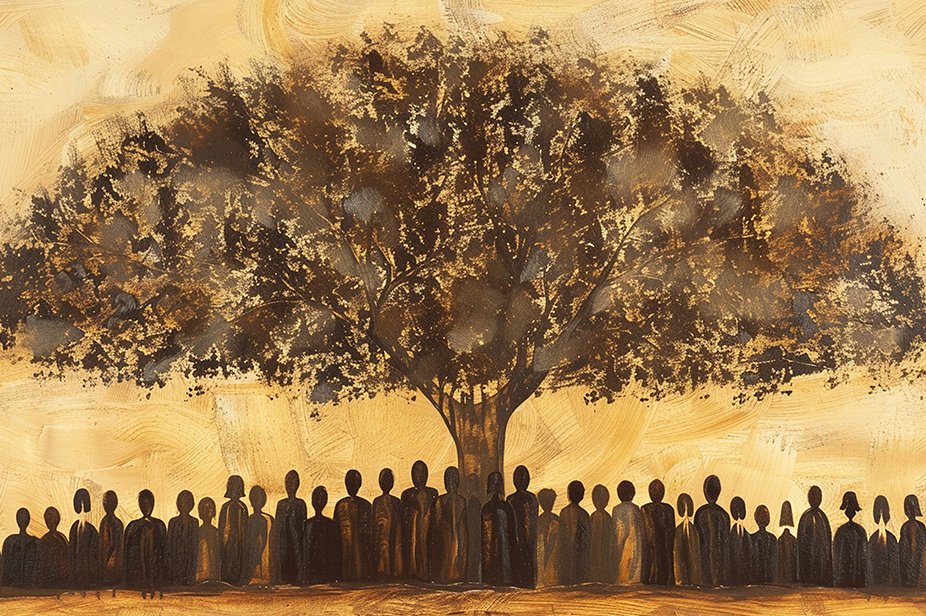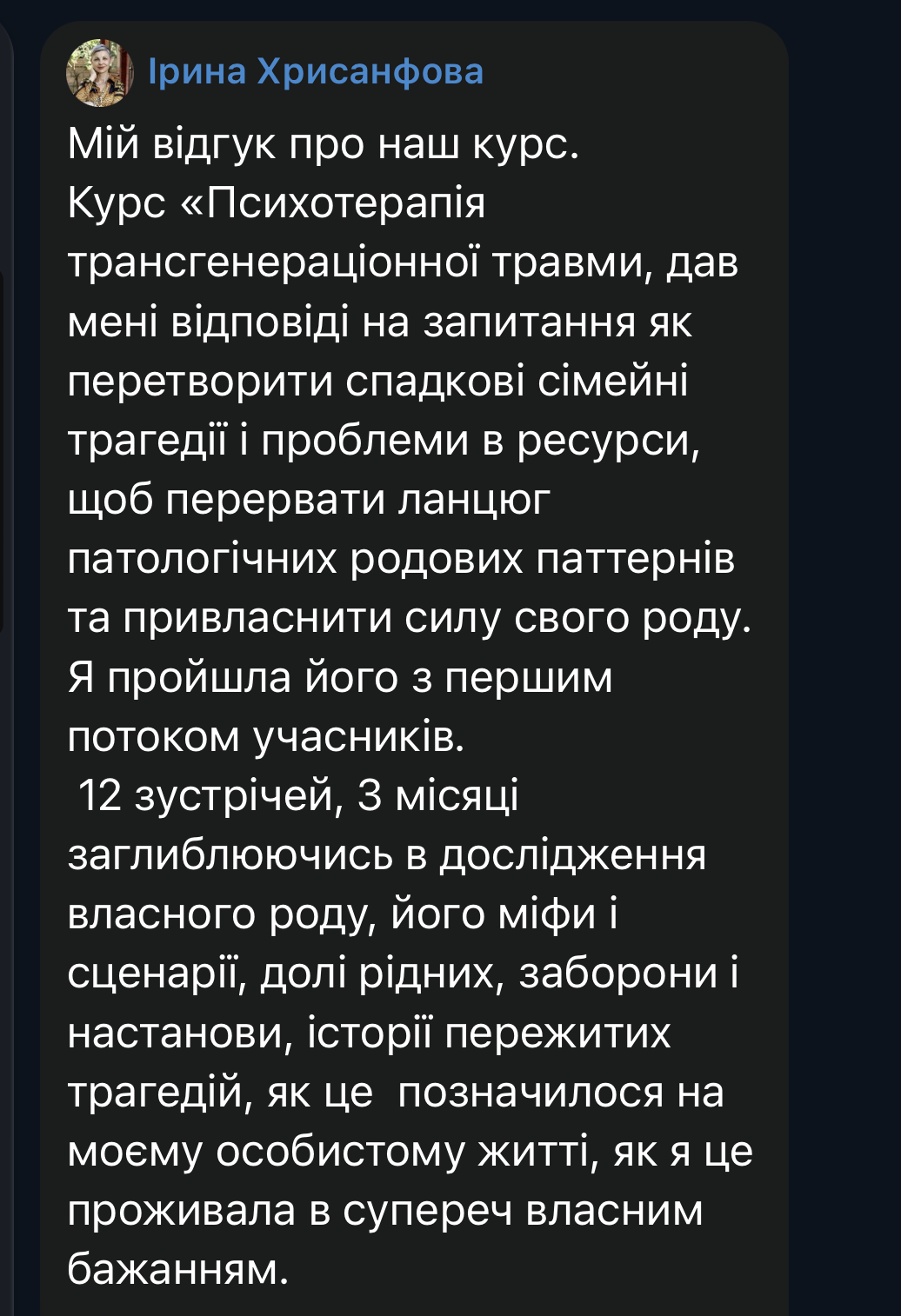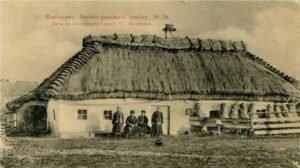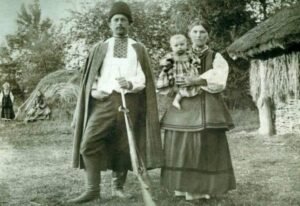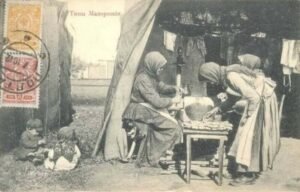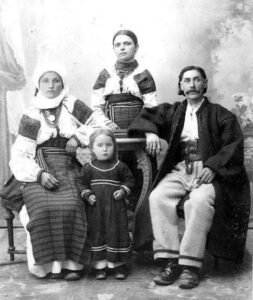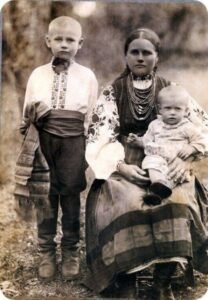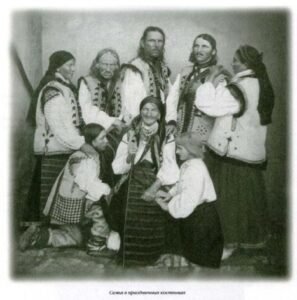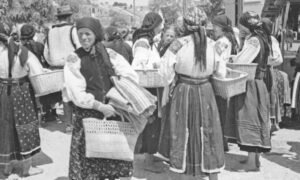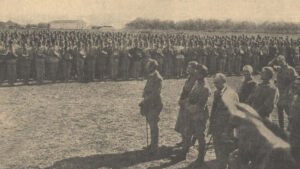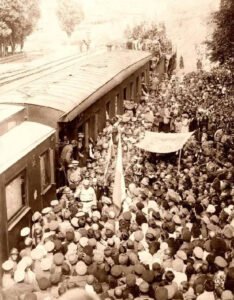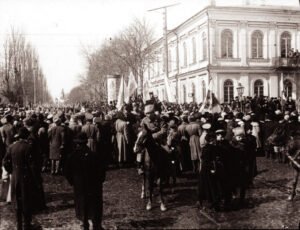GROUP PRACTICAL COURSE
Transgenerational Trauma Therapy
Recognizing and dealing with traumatic family stuff that got worse during the war.
GROUP PRACTICAL COURSE
Transgenerational Trauma Therapy
Recognizing and dealing with traumatic family stuff that got worse during the war.
8 sessions
Phase-based approach: historical research & transgenerational trauma assessment – recognition of family scenarios – Self reintegration.
3 hours per week
Classes are held once a week, on Fridays (6:00 p.m. to 9:00 p.m. Kyiv time).
3 key topics
Topic 1. Collective trauma.
Topic 2. Family scenarios.
Topic 3. Your own identity.
Hello, my name is Tatiana Stanislavskaya, and I have created a course called “Transgenerational Trauma Psychotherapy.” It contains my knowledge, many years of experience as a trauma therapist, and a scientific approach (intergenerational trauma during war is the topic of my doctoral dissertation).
Transgenerational scenarios live “in the shadows” — in unlived losses, in the silencing of family secrets, in repeating scenarios and roles (“rescuer,” “guilty one,” “hope of the family”), in dramatic relationships, and in physical symptoms. Exploring these contours provides insight into where there is support in our personal history and where there are knots that need to be untangled.
We cannot change the past, but we can change our attitudes and the rules we live by — so that we do not pass on to our children what we ourselves did not want to inherit.
As children, we did not always have a choice.
Now we do.
More about me
Course cohort 3 starts – June 6, 2026.
Price – 17,550 UAH.
Early bird price until May 1, 2026 – 13,500 UAH.
Registration (ua)
The course is designed for psychologists, psychotherapists, and counselors who want to explore their own family history in an environmentally friendly way, its impact during the war, and methods for working through family trauma in private practice.
Topic 1.
Collective trauma
While the story remains unclear, the psyche remains tense: “something is wrong,” but it is unclear what. Taboo topics often manifest as anxiety, guilt, sabotage in relationships or work.
Restoring family history (facts, names, occupations, roles, events, relationships, traditions) and identifying blind spots — hidden losses, “skeletons in the closet,” recurring “family”/hereditary illnesses — allow us to see chains of interconnections and areas of tension.
At this stage, much becomes clear and manageable.
Topic 2.
Family scenarios
When you explore the mechanisms of trauma transmission within your own family, it becomes clear that it is not “something wrong with me,” but a pattern that you did not choose, but which can be rewritten by adult decisions.
Understanding helps you build boundaries without guilt and not confuse love with self-sacrifice.
What family scenarios we explore: destructive prescriptions (Goulding), family unconscious (Leo Sandi); first emotional experience and “family constellation” (Alfred Adler); life script (Eric Berne); family systems (Murray Bowen); attachment styles (John Bowlby); “dead mother” (Andre Green); “maternal container” (Wilfred Bion); “family mandate” (Serge Lebovici); influence of a narcissistic parental figure (including on the formation of sexuality in adult life); identification with an aggressor in the family, parental trauma, etc.
Topic 3.
Own identity
Identity is not a rebellion against one’s family, but the right to live one’s own life. When you distinguish “mine” from the introjected (“it is customary in our family”), an inner permission to choose differently, to rely on your own values and body rhythm, appears.
This reduces the repetition of family scenarios and frees up energy for relationships, career, and creativity.
What we do in the module: we distinguish between “mine” and “not mine”; we identify prohibitions/permissions; we transform family mandates into adult, ecological rules; we form the foundations of identity.
What will be the result of the course?
Most of all, I would like to write about how this course will create a beautiful and brilliant reintegration of your family narrative, change your life, and bring you a lot of money. It will give you the right to your own destiny, based on the best of everything you have inherited…
But the truth is that profound transformations cannot be achieved in 2-3 months. Family “treasures” that are deeply integrated into the psyche (and sometimes even into the DNA), which we did not want, cannot be changed so easily.
But if you manage to at least realize the coordinate system in which you have lived your whole life. And what exactly gives you support in life’s trials, and what destroys more than war — that will already be an extraordinary result.
This is where the changes will begin.
Feedback from course participants
From February 6 to April 24, 2026, the second stream of the course “Psychotherapy of Transgenerational Trauma” will take place. Feedback from its participants will be added later.
Here are some reviews from participants in the first session of the course (October 3 – December 19, 2025). The course took place amid the realities of full-scale war: rocket attacks and bombings of Ukrainian cities, total blackouts, and cuts to heat, water, and communications. Despite this, we were able to complete the entire course from the first to the last meeting, without any cancellations or postponements.
Below are the words of those who were part of this process.
More working notes from the first stream of the course can be found on the Telegram channel “Psychological Trauma of War” (ua)
Or via direct links (ua):
about (non)coincidental coincidences, about how the unconscious rises through dreams, about shifts in family systems that experience therapeutic interventions, about strong female branches in the families of participants, about how nothing disappears anywhere, about the strongest traumas from the mother, about the genogram – as a self-portrait of the person who composes it, about metaphors of family losses, about working with emotional metaphors, about the synchronization of course participants with each other, about how life secrets work, about narratives, about the importance of the evidence of your history, because someone has to hear it, see it, share it, about how transgenerational trauma is transmitted (video metaphor with matches), about the victory of light

